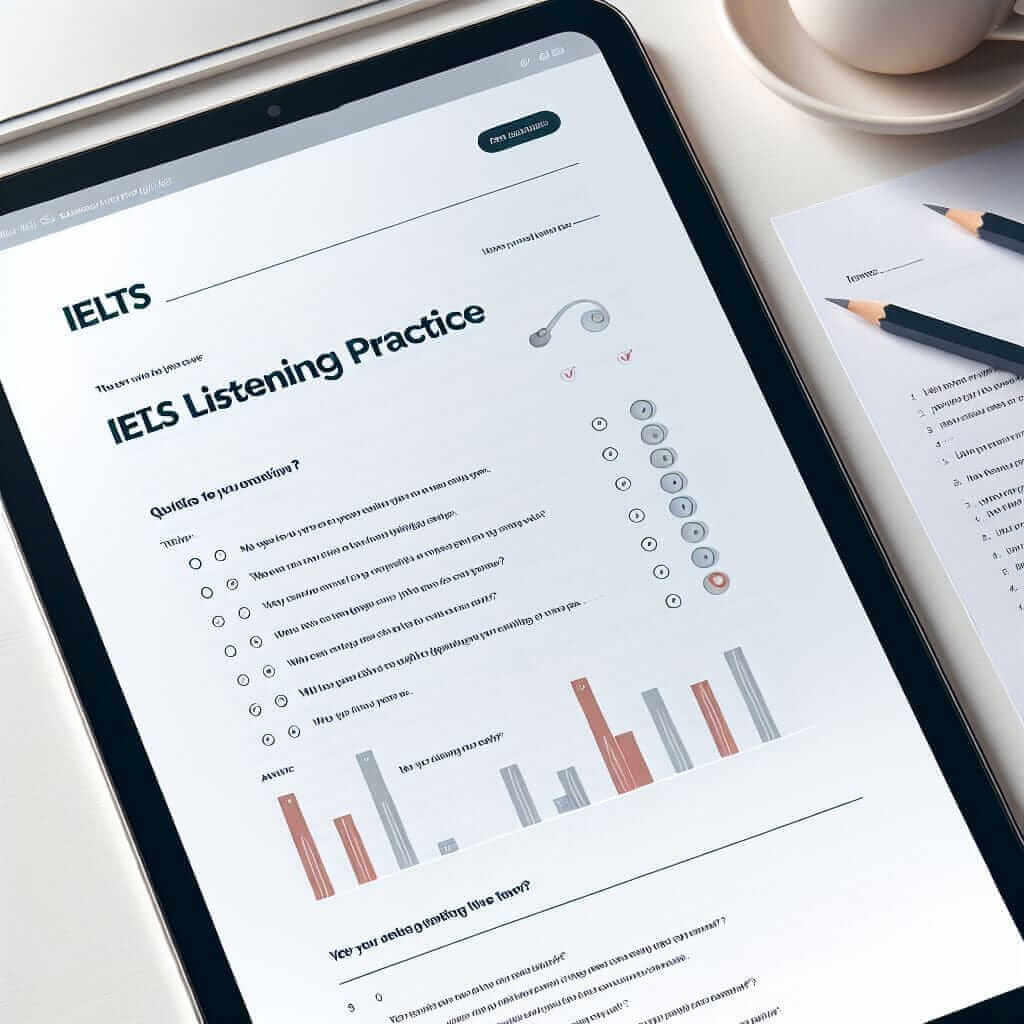As an IELTS instructor with over 20 years of experience, I’ve witnessed firsthand the transformative power of consistent practice, especially when it comes to the IELTS Listening test. Many students search for “how to prepare for IELTS listening pdf” seeking that magic resource. While there’s no shortcut to success, using practice PDFs strategically can significantly boost your listening comprehension skills. This article will guide you through how to effectively use these valuable resources to maximize your IELTS Listening score.
Why IELTS Listening Practice PDFs Matter
Think of IELTS Listening practice PDFs as your training ground. They provide:
- Authentic Test Experience: PDFs often simulate the actual test format, timing, and question types, familiarizing you with what to expect on exam day.
- Targeted Skill Development: Different PDFs focus on specific skills like identifying keywords, understanding different accents, and tackling various question formats.
- Flexibility and Accessibility: You can access and practice with these PDFs anytime, anywhere, at your own pace.
How to Use IELTS Listening Practice PDFs Effectively
Here’s a strategic approach to maximize your learning:
1. Start with a Diagnostic Test
Before diving into practice PDFs, take a full-length IELTS Listening practice test. This will help you:
- Identify Strengths and Weaknesses: Pinpoint areas where you excel and areas needing improvement.
- Set Realistic Goals: Understanding your baseline score helps you set achievable targets for improvement.
2. Choose the Right PDFs
Not all PDFs are created equal. Look for:
- Reputable Sources: Stick to PDFs from official IELTS websites (like British Council or IDP) or well-known publishers.
- Variety of Accents: Ensure the PDFs expose you to a range of native English accents (British, American, Australian, etc.).
- Detailed Answer Keys and Explanations: Opt for PDFs that provide not just answers but clear explanations for why answers are correct or incorrect.
3. Develop a Structured Practice Routine
Consistency is key. Dedicate specific time slots for IELTS Listening practice.
- Active Listening: Don’t just passively listen. Focus on understanding the main ideas, identifying keywords, and following the speaker’s train of thought.
- Note-Taking Practice: Develop a system for jotting down key information while listening. This is crucial for recalling details later.
- Analyze Your Mistakes: Don’t just check answers. Review your incorrect answers carefully, understand why they were wrong, and identify patterns in your errors.
4. Don’t Neglect Other Skills
While practicing with PDFs is essential, remember that IELTS Listening is intertwined with other skills:
- Vocabulary Building: Regularly expand your vocabulary, paying attention to common IELTS themes like education, technology, and the environment.
- Grammar Improvement: A strong grasp of grammar aids in understanding complex sentences and identifying distractors in the listening passages.
Example from an IELTS Listening Test
Let’s analyze a question type you might encounter in a practice PDF:
Question Type: Multiple Choice
You will hear a conversation between a student and a librarian.
What is the MAIN purpose of the student’s visit?
(A) To borrow a specific book for a research paper.
(B) To learn about the library’s online resources.
(C) To find a quiet study space for the afternoon.
Listening Extract:
Student: Hi, I’m working on a research paper about renewable energy, and I was wondering if you could help me find some resources. I need a book called “The Future of Solar Power,” but it seems to be checked out.
Librarian: Let me check the system. … You’re right, it’s currently unavailable. However, we do have a comprehensive online database with articles and e-books on that topic. Would you like me to show you how to access it?
Analysis:
- The student’s initial statement reveals their need for a specific book for their research paper (Option A).
- While the book is unavailable, the librarian offers alternative online resources (Option B).
- The main purpose of the student’s visit revolves around finding materials for their research, making Option A the most accurate answer.

Tips for Success
- Focus on Keywords: Train yourself to identify keywords in both the questions and the audio. These words will guide you to the relevant information.
- Anticipate Answers: Before the audio starts, read the questions carefully and try to predict possible answers. This will keep you focused while listening.
- Don’t Get Stuck: If you miss a question, don’t dwell on it. Move on and focus on the next one. You can always go back if time permits.
Conclusion
While the IELTS Listening test can seem daunting, approaching it with a strategic and focused mindset can lead to significant improvement. IELTS Listening practice PDFs are invaluable tools in your preparation arsenal. Use them wisely, stay consistent with your practice, and remember that every step you take brings you closer to achieving your target score. Good luck!